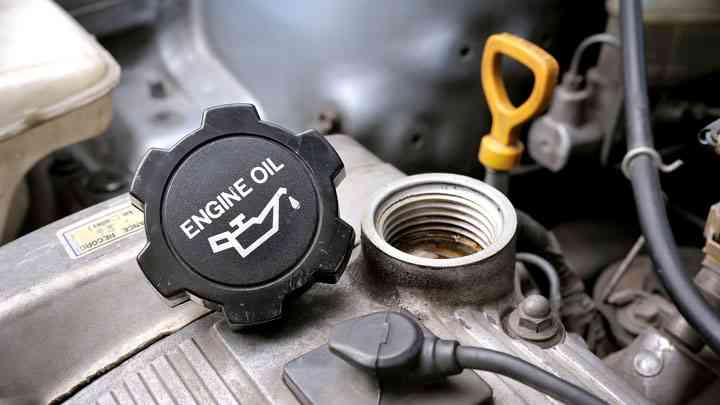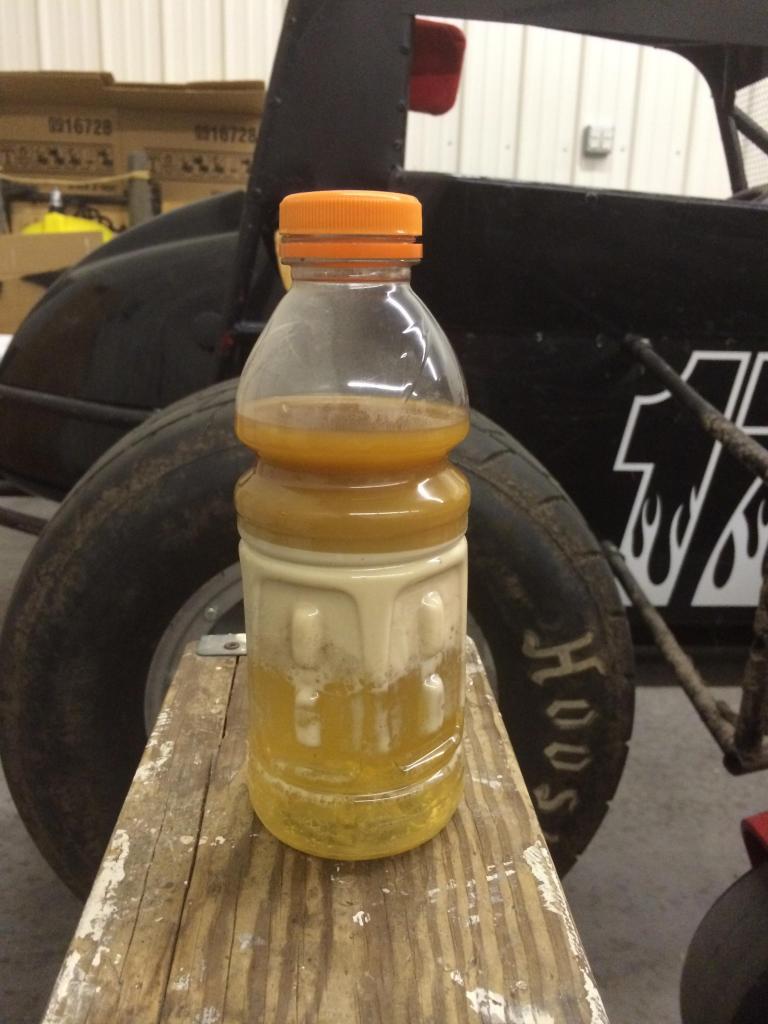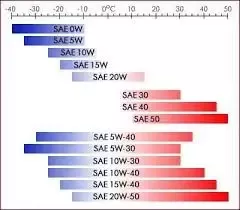If your engine oil smells like fuel, it is an indication that there is a problem with your vehicle’s engine. This problem could be caused by a variety of issues, such as a leaking fuel injector or carburetor, a damaged piston or cylinder, or an issue with your vehicle’s spark plugs.
It is important to address this issue promptly to prevent further damage to your engine and ensure that your vehicle is running safely and efficiently. We will explore the possible causes of engine oil smelling like fuel and what steps you can take to fix the issue.

Credit: carfromjapan.com
Introduction To Engine Oil Contamination
The Role Of Engine Oil
Engine oil plays a crucial role in lubricating the moving parts of an internal combustion engine, reducing friction and preventing wear and tear. It also helps to cool the engine by carrying heat away from the combustion chamber.
How Contaminants Affect Engine Performance
Contaminants in engine oil, such as fuel, dirt, and metal particles, can significantly impact engine performance. These contaminants can lead to increased friction, reduced lubrication, and accelerated wear on engine components.
Identifying The Smell Of Fuel In Engine Oil
Engine oil is essential for the smooth functioning of a vehicle. However, if you notice that your engine oil smells like fuel, it could be an indication of a significant problem. Identifying the smell of fuel in engine oil is crucial to prevent any serious damage to your engine.
Characteristics Of The Smell
The smell of fuel in engine oil can be described as a pungent odor that resembles the scent of gasoline. It is usually very strong and can be easily identified. If you notice a strong gasoline-like smell coming from the engine oil, it is time to take action immediately.
Initial Checks And Observations
If you suspect that your engine oil smells like fuel, the first thing to do is to check the oil level. Make sure that the oil level is not too high or low. If the oil level is too high, it can cause the engine to burn oil, resulting in a fuel-like smell. On the other hand, if the oil level is too low, it can cause the engine to overheat, resulting in a burning smell.
Another thing to check is the color of the engine oil. If it appears to be darker than usual, it could indicate that there is too much fuel in the oil. Additionally, check the oil dipstick for any signs of contamination, such as metal shavings or debris. These could indicate a more serious problem that requires immediate attention.
If you have checked the oil level, color, and dipstick and everything appears to be normal, it is time to take your vehicle to a professional mechanic. They will be able to diagnose the problem and provide you with the necessary repairs.
Identifying the smell of fuel in engine oil is crucial to prevent any serious damage to your engine. If you notice any unusual smells or colors, it is important to take action immediately. By following the steps outlined above, you can ensure that your vehicle is running smoothly and efficiently.
Common Causes Of Fuel Odor In Engine Oil
When you notice that your engine oil smells like fuel, it is essential to identify the underlying causes and address them promptly. Ignoring this issue can lead to severe damage to your engine and decrease its overall performance. In this section, we will explore the common causes of fuel odor in engine oil and what you can do to resolve them.
Leaking Fuel Injectors
One of the primary reasons for fuel odor in engine oil is leaking fuel injectors. Fuel injectors play a crucial role in delivering the right amount of fuel to the combustion chamber. However, when they develop leaks, fuel can seep into the engine oil, resulting in a noticeable fuel smell. This can occur due to worn-out seals or o-rings within the fuel injectors.
Faulty Seals And Gaskets
Faulty seals and gaskets in your engine can also contribute to fuel odor in the engine oil. Over time, these seals and gaskets can deteriorate, leading to leaks and allowing fuel to mix with the oil. Common culprits include the valve cover gasket, cylinder head gasket, and oil pan gasket. Identifying and replacing these faulty seals and gaskets is crucial to eliminate the fuel odor.
Compromised Fuel Lines
Another potential cause of fuel odor in the engine oil is compromised fuel lines. Fuel lines transport fuel from the tank to the engine, and if they develop leaks or cracks, fuel can leak and mix with the oil. Inspect the fuel lines for any signs of damage, such as visible leaks or fuel stains. If you notice any issues, it is essential to replace the compromised fuel lines promptly.
In conclusion, when your engine oil smells like fuel, it indicates an underlying issue that requires attention. Leaking fuel injectors, faulty seals and gaskets, and compromised fuel lines are common causes of fuel odor in engine oil. By addressing these issues promptly, you can ensure the longevity and optimal performance of your engine.

Credit: www.f150forum.com
The Impact Of Fuel Contamination On Engine Health
Engine oil that smells like fuel can be an alarming sign of fuel contamination. This issue can have several detrimental effects on the overall health and performance of your engine. In this section, we will explore the various impacts of fuel contamination on engine health.
Lubrication Issues
Fuel contamination in engine oil can lead to lubrication issues. The presence of fuel in the oil reduces its viscosity, making it less effective in providing proper lubrication to the engine components. As a result, the moving parts may experience increased friction and wear.
Wear And Tear
When fuel contaminates the engine oil, it can accelerate wear and tear on vital engine components. The improper lubrication caused by fuel contamination can result in increased metal-to-metal contact, leading to faster degradation of parts such as bearings, pistons, and cylinders.
Potential For Engine Damage
The presence of fuel in engine oil poses a significant risk of engine damage. Fuel is not designed to provide the necessary lubrication and protection that engine oil offers. The fuel’s combustion properties combined with the oil’s lubricating properties can lead to the formation of harmful deposits and sludge, which can clog oil passages, restrict flow, and cause overheating. These issues can ultimately result in engine failure if left unaddressed.
To ensure the longevity and optimal performance of your engine, it is crucial to address fuel contamination promptly. Regularly checking the smell of your engine oil and taking appropriate measures to prevent fuel contamination can help preserve your engine’s health and extend its lifespan.
Diagnosing The Root Cause
When your engine oil smells like fuel, it can be a sign of a potentially serious issue with your vehicle. Diagnosing the root cause of this problem is crucial for ensuring the safety and performance of your car. Understanding the potential reasons behind the fuel-like odor in your engine oil can help you take the necessary steps to address the issue promptly and effectively.
Professional Diagnostic Approaches
When dealing with engine oil that smells like fuel, seeking the expertise of a professional mechanic or technician is essential. They have the knowledge and tools to conduct thorough inspections and diagnostic tests to pinpoint the exact cause of the problem. Professional diagnostic approaches may include:
- Performing a comprehensive visual inspection of the engine and its components
- Conducting a fuel system pressure test to identify potential leaks or malfunctions
- Utilizing diagnostic equipment to analyze the composition and condition of the engine oil
Diy Troubleshooting Tips
While professional assistance is invaluable, there are some DIY troubleshooting tips that car owners can consider when engine oil smells like fuel. These steps can provide initial insights and aid in the identification of potential issues:
- Check for visible leaks or seepage around the engine and fuel system components
- Inspect the spark plugs for signs of fuel fouling or excessive carbon deposits
- Monitor the vehicle’s fuel consumption and performance for any noticeable irregularities
Solutions And Preventive Measures
To address engine oil smelling like fuel, implement solutions and preventive measures promptly. Inspect for leaks, replace worn-out gaskets, and ensure proper fuel combustion to prevent this issue. Regular maintenance and using high-quality oil can help avoid this unpleasant odor in the future.
Repair And Replacement Options
Addressing engine oil that smells like fuel requires prompt action. Seek professional assistance to diagnose and resolve the issue. Depending on the severity, repair or replace damaged components.
Routine Maintenance And Checks
To prevent engine oil smelling like fuel, conduct regular maintenance checks. Inspect for leaks and ensure proper sealing of components. Change oil filters and use high-quality fuel to avoid contamination.
Case Studies: Resolving Fuel Smell In Engine Oil
Resolving fuel smell in engine oil requires thorough examination of the fuel system and engine components to identify potential leaks or issues. Case studies involving engine oil smelling like fuel often involve inspecting the fuel injectors, fuel pressure regulator, and other relevant parts to pinpoint and address the root cause of the problem.
Real-world Examples
One driver noticed strong fuel odor in engine oil after short trips.
Another vehicle owner experienced rough idling and decreased fuel efficiency.
Lessons Learned And Best Practices
- Regularly check for fuel leaks and address them promptly.
- Ensure proper fuel injection system maintenance.
- Use high-quality engine oil suitable for your vehicle.
Conclusion And Final Thoughts
Engine oil smelling like fuel can be a cause for concern. This indicates potential issues with the fuel system or engine components. It is important to promptly address this problem to prevent further damage and ensure optimal engine performance.
Summarizing Key Takeaways
In essence, detecting fuel-like odors in your engine oil signals potential issues.
Regular maintenance and early identification are crucial for optimal engine performance.
The Importance Of Early Detection And Intervention
Addressing fuel smells promptly can prevent costly repairs and extend engine lifespan.
Consult a mechanic if fuel odors persist, ensuring swift resolution of any underlying problems.

Credit: www.youtube.com
Frequently Asked Questions
Why Does My Engine Oil Smell Like Fuel?
If your engine oil smells like fuel, it could be a sign of a serious problem. This could be due to a leaking fuel injector, worn piston rings, or a faulty fuel pressure regulator. It’s important to address this issue promptly to prevent further damage to your engine.
What Are The Potential Causes Of Engine Oil Smelling Like Fuel?
There are several potential causes for engine oil smelling like fuel. These include excessive idling, a rich fuel mixture, or a faulty crankcase ventilation system. It’s important to have a professional mechanic diagnose the issue to determine the exact cause and necessary repairs.
Is It Safe To Drive My Vehicle If The Engine Oil Smells Like Fuel?
Driving a vehicle with engine oil that smells like fuel is not safe. This issue can lead to decreased lubrication, increased engine wear, and potential engine damage. It’s crucial to have the problem addressed by a qualified mechanic before driving the vehicle to prevent further complications.
Conclusion
If your engine oil smells like fuel, immediate action is crucial. Ignoring this issue can lead to serious engine problems. Stay proactive and consult a professional to diagnose and resolve the underlying cause. Regular maintenance is key to keeping your vehicle running smoothly and efficiently.


